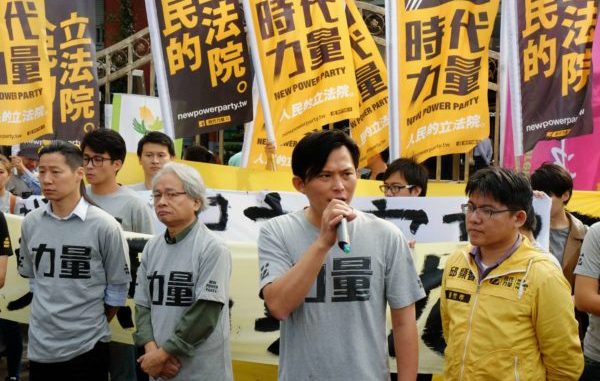
Island risks being pawn in his game
Donald Trump’s phone call, soon after his election, with Taiwan’s president Tsai Ing-wen, was the first time a US leader (or president-elect) has directly spoken with their Taiwan counterpart since 1979. The existing accord between Washington and Beijing, holding to the ‘One China’ policy, is deliberately ambiguous, designed to maintain the ‘strategic balance’ in the Taiwan Strait by not recognising or having formal diplomatic relations with Taiwan, but allowing – over Chinese protests – the US to sell arms to Taiwan and maintain close unofficial relations. Taiwan is the third biggest buyer of US arms in the Asia-Pacific after South Korea and Australia (source: SIPRI).
This policy has been followed by every US president since Nixon, which is why Obama, despite orchestrating a significant military build-up to contain China through his ‘pivot’ strategy, did not tamper with the established Taiwan policy. “If you’re going to upend this understanding, you have to have thought through what the consequences are,” Obama warned Trump, adding that Beijing’s response could be “very significant”.
The issue is a potential Pandora’s Box – releasing unpredictable forces – because no Chinese regime could accept any dilution or ‘renegotiation’ of its international standing vis-à-vis Taiwan without this risking a serious backlash from within the CCP-state and military. For Xi, who is already gambling his position on trying to shackle the CCP factions and cement his ‘core leadership’ in the run up to this autumn’s congress, any concessions to the US over Taiwan could trigger his downfall in the internal power struggle.
Such an outcome is not at all desirable for the capitalist class internationally who, despite grumblings over the lack of progress with Xi’s promised market reforms, fear the alternative scenarios: of China succumbing to internal turmoil or seeing an even more nationalistic reaction take control. This is why European government spokespersons can be heard remonstrating with Trump that you “don’t talk to China that way”.
Taiwan independence
Socialists support the right of self-determination for the people of Taiwan. They have the democratic right to decide and we oppose any threats, coercion or interference, whether by China, the US, or other outside powers. But saying this does not count for much unless it is linked to opposing the arms race and militarism, and opposing capitalism which is the driving force behind that development.
A majority in Taiwan favour independence but prefer not to shout about it, believing the current undeclared but ‘functional’ independence is a safer option, for fear of war with China. It is the policies of the Chinese dictatorship, exerting greater political pressure on Taiwan through its economic muscle and cosy relationship with the top Taiwanese capitalists, that is upsetting this precarious balance and pushing the younger generation especially to reject pro-China policies and politicians, like the previous Kuomintang government, and to be more assertive over independence.
The government of president Tsai and the Democratic Progressive Party (DPP) have in practise abandoned the idea of pushing for formal independence, because the Taiwanese capitalists – the DPP doesn’t want to antagonise them – want closer economic ties with China. They definitely don’t want to push things in the direction of a serious conflict that could cripple Taiwan’s economy even if war was avoided.
This shows that the struggle for Taiwan’s independence is linked to the struggle for socialism in Taiwan, in China, and across Asia. On a capitalist basis, small nations and democratic rights will always be dictated to by bigger powers and their economic interests. Trump’s advisors are looking to manipulate the Taiwan question for the purposes of US policy. The island risks becoming a “pawn in Donald Trump’s game” as the Wall Street Journal recently put it – a bargaining chip used by Washington to exert pressure on the Chinese regime, in the hope of obtaining economic and trade concessions.
This has not stopped some sections of Taiwan’s independence movement, unfortunately, from falling under Trump’s influence, seeing him as an ally against the Chinese regime. This is the case with the New Power Party, a force that emerged from the mass ‘Sunflower Movement’ against a pro-China trade deal in 2014. Some NPP leaders have taken a pro-Trump tone, defending him against ‘demonisation’.
In China, human rights campaigners have also expressed their hopes that Trump will speak up for their cause. As the saying goes, there are ‘none so blind as those that will not see’. Trump has made no secret of his admiration for authoritarian regimes, including his praise for the Chinese dictatorship’s “strong” suppression of the 1989 democracy protests. He has also campaigned for the right of the US state to use torture “against terrorists”.
Special financial appeal to all readers of socialistworld.net |
Support building alternative socialist media Socialistworld.net provides a unique analysis and perspective of world events. Socialistworld.net also plays a crucial role in building the struggle for socialism across all continents. Capitalism has failed! Assist us to build the fight-back and prepare for the stormy period of class struggles ahead. Please make a donation to help us reach more readers and to widen our socialist campaigning work across the world. |
Donate via Paypal |
| M | T | W | T | F | S | S |
|---|---|---|---|---|---|---|
| 1 | ||||||
| 2 | 3 | 4 | 5 | 6 | 7 | 8 |
| 9 | 10 | 11 | 12 | 13 | 14 | 15 |
| 16 | 17 | 18 | 19 | 20 | 21 | 22 |
| 23 | 24 | 25 | 26 | 27 | 28 | 29 |
| 30 | 31 | |||||


Be the first to comment